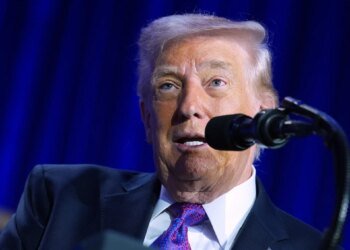By Ghulam Haider
Springing the much-touted ‘surprise’ on his political allies and opponents alike, former prime minister Imran Khan while addressing Haqeeqi Azadi march near Rawalpindi Garrison, the twin city of the Federal cpital Islamabad, announced his party’s intention to disassociate itself from the “current corrupt political system” by quitting the assemblies of Khyber Pakhtunkhwa and Punjab.
However, a final decision would only be taken after consultations with chief ministers in both provinces, while a final decision would be made after a meeting of the PTI’s parliamentary party, Mr Khan said in his first public appearance since the attempt on his life in Wazirabad on Nov 3.
PTI leader Fawad Chaudhry revealed that the party leadership will hold a meeting to decide on the date for dissolving the assemblies of Punjab and Khyber Pakhtunkhwa and will also finalise a strategy for resigning from the provincial assemblies of Sindh and Balochistan. With these decisions, around 64% of seats in Pakistan will be vacant, which will pave the way for general elections.
Quitting legislatures is not a new practice for the PTI. It left the National Assembly by submitting resignations in 2014 when the PML-N government was reluctant to form an inquiry commission to probe the alleged rigging in the 2013 general elections.
The PTI again left the assembly in April this year when it was ousted from power. Instead of engaging with the political leadership, the PTI gave full attention to the institutions for holding early general elections since April but its strategy remained unsuccessful.
Now, a debate has started as to why Imran had announced leaving the assemblies and would this strategy be successful. First, Imran wants early elections because of his popularity among the people and it will be easy for the PTI to win the majority of the seats at present. Secondly, the sword of disqualification is hanging over the PTI chief in several matters, especially the Toshakhana and prohibited funding cases.
This announcement of Imran Khan is being discussed in many ways in political and social circles.
The federal government and the political coalition and a section of every sector of life who disagree with Imran Khan’s style of politics are interpreting this announcement as a mere face-saving attempt or just to avoid Subki.
Imran Khan miserably failed to put any pressure on the appointment of the Army Chief through his agitation politics and futile long march, nor has he been able to pave the way for early elections. In the view of this constituency, the long march did not yield any positive result and the participation of not enough number of workers in Rawalpindi perhaps forced Khan to announce the culmination of his march towards Islamabad and push the government and establishment to fulfill his demands.
On the other hand, the supporters of Imran Khan’s narrative are calling it the best political ploy in the given circumstances. This section believes that Imran Khan has pushed the federal government and its allies to the back foot. The appointment of the Army Chief had increased the confidence of the federal government, but Khan’s announcement to exit from the assemblies has proven to be bolt from the blew for this (confidence).
However, a few questions still remain valid given Mr. Khan’s previous tantrums. Will Imran Khan be out of the assemblies or he will take yet another U-tern once, will the assemblies dissolved or will the no-confidence motion get in the way? If Imran takes the final decision to be out of the assemblies, what options will the federal government have? Are these types of questions being raised? All these questions finally end up in the discussion of new elections.
Face saving, new political ploy or something else?
Imran Khan’s decision is being discussed in terms of face-saving and political tricks through which Imran Khan intends to create an indecisive situation for his opponents through his resistance and protest style of politics.
The first attempt of the maverick politician and PTI Chairman is to push the government and establishment for snap elections. If he unsuccessful in this effort, he will continue his resistance and protest politics, which started after he was ousted from the office of the prime minister in April this year. And, he will like to continue this style of politics till new elections are held.
By doing so, Mr. Khan wants to keep mobilized their voters and maintain pressure on rival parties. Prof. Rasool Bakhsh Rais, political analyst, is also of the same view. Obviously, he says, Imran Khan wants to continue the movement against the current system and the federal government.
“Asif Ali Zardari, Mian Nawaz Sharif and Maulana Fazlur Rehman will not conduct early elections under pressure. Why will these people cut off their own hands? So Imran Khan wants to continue the protest movement against them.”
Will Imran Khan’s pressure for immediate elections be effective?
If Imran Khan decides to leave assemblies, and Punjab Chief Minister Parvez Elahi joins Pakistan Democratic Movement (PDM) parties, then situation may change. But, in the given circumstances, it seems a distant possibility.
The moment Imran Khan announced to exit from assemblies in Rawalpindi rally, Monis Elahi tweeted submission to Khan’s decision. In a video statement, Pervez Elahi made it clear that the Punjab assembly will be dissolved immediately Imran Khan orders.
This reflects Parvez Elahi’s support for Imran Khan. If there were qualms that Chaudhry Pervez Elahi would supported Imran Khan, then it would have been the best time to do so as one of the major political families of the Punjab had seen clear split with Shujaat and Parvez visibally parting their ways. Next general election is clearly in the mind of Parvez Elahi.
If Pervez Elahi inclines towards PDM, then Imran Khan’s movement will obviously be more intensive and his narrative is bound to be more strengthened in the public. While the PDM parties have the responsibility to ensure political stability instead of protest or resistance to give people some relief to mitigate the anger of their voters in next election.
So, there are problems for the PDM in either case if the assemblies are dissolved or the attempts to dissolve them are fruitful or the elections are on time or early. In both cases, political instability will be augmented, which will inevitably benefit Imran Khan.
Pakistan People’s Party leader Qamar Zaman Kaira admits that the government and the parties involved have been affected by Imran Khan’s decision and will continue to be affected. “It is unfair to say that Imran Khan’s decision will not affect us. The announcement of resignations from the assemblies is definitely a crisis situation in the country’s politics, but it is not possible to hold elections immediately.”
How difficult, how easy is the decision to dissolve assemblies?
It is not at all easy for Pakistan Tehreek-e-Insaaf to dissolve the assemblies of two provinces and end their governments. If such a decision is made, it will definitely affect the politics of PTI.
Although the administrative heads both the provinces have made it clear they will not take a minute to dissolve the government when Imran Khan passes the orders.
Spokesperson of the Punjab government, Musrat Jamshed Cheema, says that the Chief Minister’s statement of dissolving the assembly is not just a statement, his words are authentic, he did not say this in the heat of rhetoric. As soon as the decision is taken, immediate action will be taken.
Khyber Pakhtunkhwa Assembly Speaker Mushtaq Ghani says that the process of consultation is going on while some consultations have already taken place. As soon as the decision is made, the assembly will be dissolved. “There will not be much delay.”
On the other hand, political parties have mobilized to save the assemblies from breaking up at the provincial level. In Punjab, PML-N seems to be formulating its strategy. PML-N leader Malik Ahmad Khan on Imran Khan’s announcement said, “We will try to prevent the dissolution of the assembly. We have the no-confidence option. As we head towards the general elections, we are in a difficult place. It is important for the political parties to prevent this process.”
In the Khyber Pakhtunkhwa Assembly, the PTI government is facing some kind of reaction from the opposition parties. Mushtaq Ghani says that PTI enjoys majority and we don’t face any difficult scenario from the opposition.’
Different scenarios
If a no-confidence motion is presented in the Punjab and Khyber Pakhtunkhwa assemblies, the way to dissolve the assembly will be blocked if the assembly session is in progress. In different scenario, if the chief minister sends a recommendation to the governor to dissolve the assembly, then will the political parties with intention to present a no-confidence motion left with any legal justification to take the matter to the court to prevent the dissolution of assemblies?
Dr. Azizul Rehman, Head of the Department of Law at Quaid-i-Azam University, says that if the chief minister sends an advice to the governor to dissolve the assembly, there is no legal recourse for the parties presenting the no-confidence motion. “This is prerogative of any one to go to the court. Similarly, the parties presenting no-confidence motion can go to court, but the court will not have anything to offer them.” He says that elections cannot be held simultaneously after dissolution of assemblies as each assembly election will be separate and distinct.
President Islamabad High Court Shoaib Shaheen says that ‘the governor is legally bound to follow the instructions of the chief minister regarding dissolution of the assembly. Political parties have no legal justification after the chief minister’s advice to dissolve the assembly.”
Options for the federal govt
If Imran Khan takes the final decision to leave the assemblies, what options are left with the federation? Qamar Zaman Kaira says that after Imran Khan’s resignation from the Prime Ministership, various tactics and ploys have been used to pressurize the federal government.
Khan tried all the tricks to destroy the federal government, sometimes he tried to pressurise the military to bring him back to the power in sheer violation of the Constitution. “This new trick will lead to a political crisis in the country. We will try to prevent the dissolution of assemblies within limits of the Constitution. If we assume that we are not successful in doing so, we will hold a new election.”
He says this is not surprising. In fact, in the history of Pakistan, provincial and national assembly elections have always been held at the same time. If PTI resigns from both the provinces, then we will hold another election here. Along with this, extraordinary laws also apply in extraordinary circumstances.
However, the Election Commission of Pakistan (ECP) says that by-elections would be held on all provincial and national assembly seats if PTI decides to quit all the assemblies.
The ECP spokesperson told the media that there is no specific law regarding announcing general elections if a certain number of seats are vacated. The by-polls would be held under constitutional procedure if any provincial assembly is vacated. “We will hold by-elections on the vacant seats if PTI MPAs resign from the assemblies.”
Moreover, the ECP spokesperson also added that holding an election in a provincial constituency costs between Rs50 million to Rs70 million. It is a difficult task to hold by-elections and general elections in the same year but the election body is bound to the law. He also said that holding elections for Punjab and Khyber Pakhtunkhwa assemblies will cost nearly Rs22 billion.








 United Arab Emirates Dirham Exchange Rate
United Arab Emirates Dirham Exchange Rate

